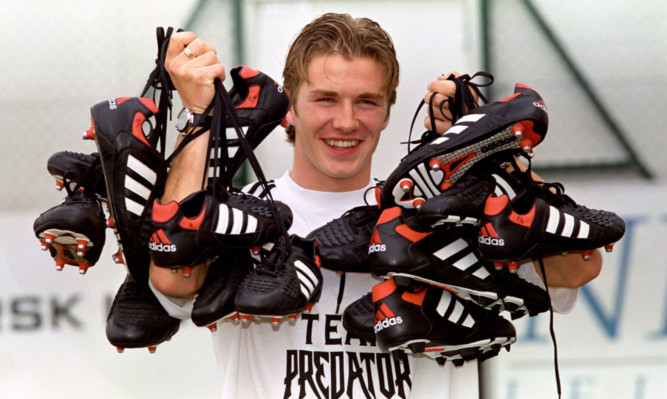
It will be exactly 17 years ago this Saturday that an extraordinary goal provided the launch pad for modern-day football’s most extraordinary career.
On August 17, 1996, on the first day of the new Premier League season, Manchester United midfielder David Beckham scored from the halfway line against Wimbledon.
Then a floppy-haired 21-year-old, Beckham was just one of a group of youngsters known as Fergie’s Fledglings manager Sir Alex Ferguson’s version of the Busby Babes.
The goal catapulted Beckham into the spotlight.
https://youtube.com/watch?v=Y-EDpyJ7688%3Frel%3D0
Remember, these were the days before he met Posh Spice, decorated himself with tattoos and generally became the planet’s most famous football style icon.
The previous season, United had won the League and FA Cup double, confounding TV pundit Alan Hansen, who claimed: “You win nothing with kids.”
In August, 1996, Beckham was given the No 10 shirt that had most recently been worn by United legend Mark Hughes.
United were leading Wimbledon 2-0 when Beckham noticed that goalkeeper Neil Sullivan had strayed out of his goal.
He hit a shot from the halfway line that, despite Sullivan’s furious back-pedalling, floated over his head and into the net.
Bizarrely, the boots he was wearing at the time had the name “Charlie” embroidered on them because they had been designed for Rangers striker Charlie Miller, who, like Beckham, was sponsored by adidas.
The company would go on to have a long and very lucrative association with Becks but, at the time, he was new to their “stable” and hardly a household name.
The Wimbledon goal changed all that.
Three weeks later, Glenn Hoddle awarded him his first England cap in a World Cup qualifier against Moldova.
That season, as well as winning the Premiership again, Beckham was voted PFA Young Player of the Year.
He ended up winning the league six times with United, as well as two FA Cups and the Champions League.
He later won titles in Spain with Real Madrid, in the US with LA Galaxy and in France with Paris St Germain, before retiring last May.
But he’ll perhaps be best remembered for an England career that saw him play for his country 115 times and captain the side for six years.

Enjoy the convenience of having The Sunday Post delivered as a digital ePaper straight to your smartphone, tablet or computer.
Subscribe for only £5.49 a month and enjoy all the benefits of the printed paper as a digital replica.
Subscribe